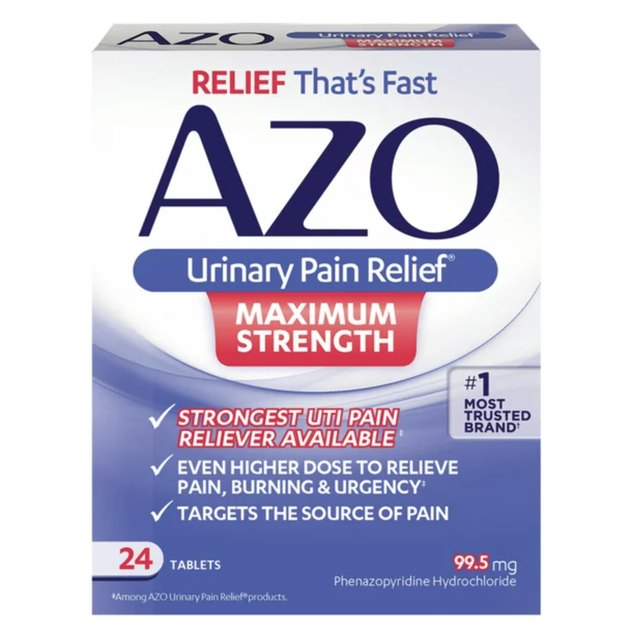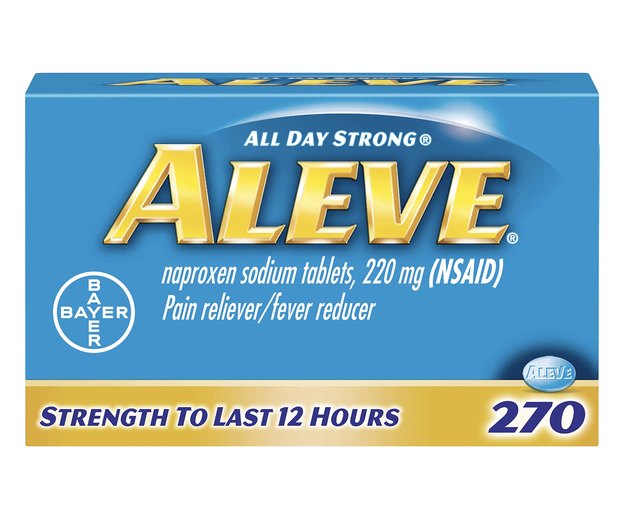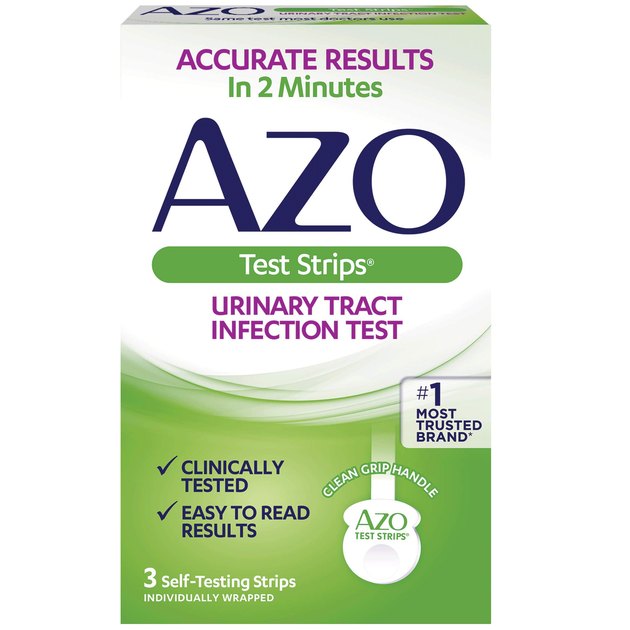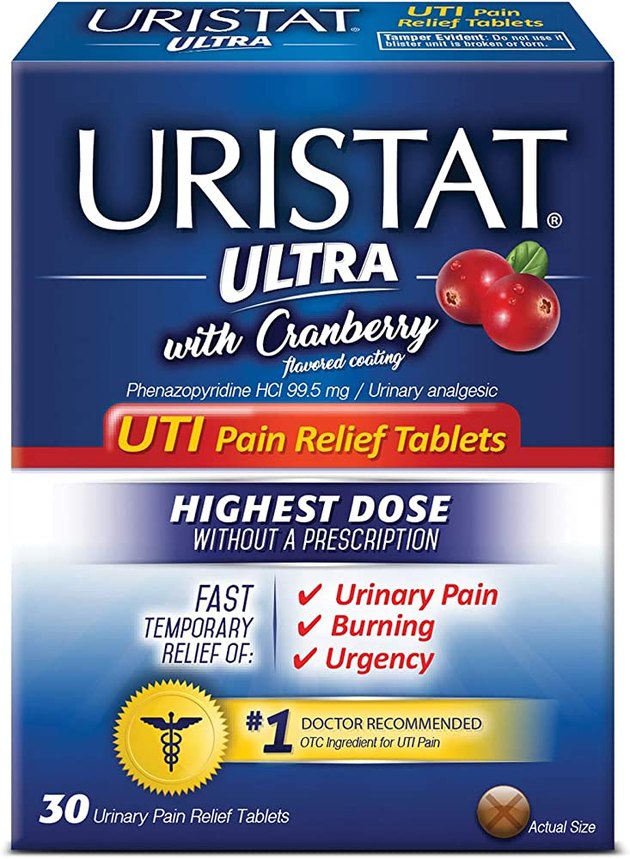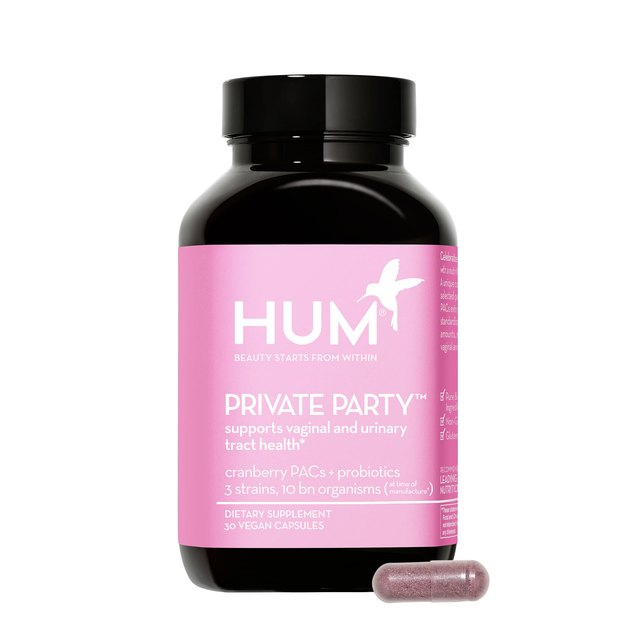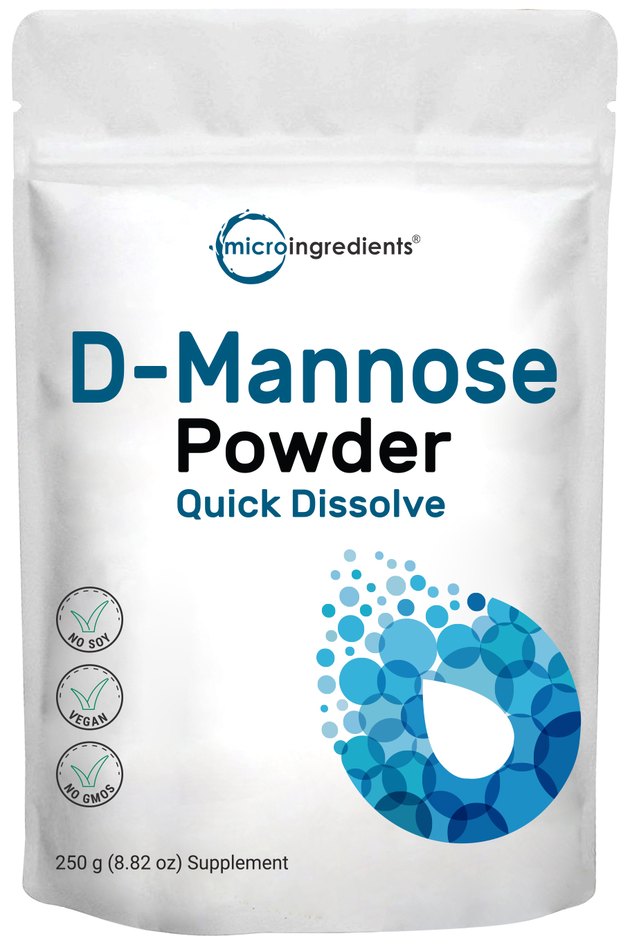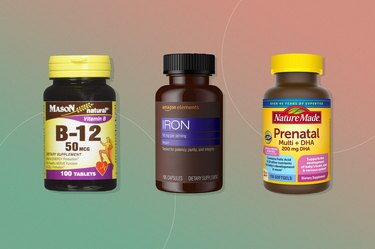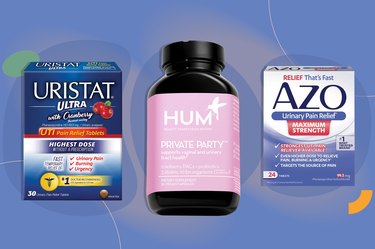
We want to be extra clear: The only effective treatment for most urinary tract infections (UTIs) is doctor-prescribed antibiotics, and it's very important to get treated as soon as possible, because untreated UTIs can develop into much more severe health problems.
So while you'll likely see many over-the-counter (OTC) products for UTIs in your local pharmacy, it's important to note the distinction between treatment and symptom management: Some OTC supplements can provide relief from uncomfortable UTI symptoms, (which include burning pain during urination, a feeling of incomplete emptying, and frequent urination) while the antibiotics get to work, but OTC products should not be used on their own to treat a UTI.
Video of the Day
Video of the Day
The Best OTC Products for UTIs
- Best for Targeted Pain Relief: AZO Urinary Pain Relief Maximum Strength Tablets ($8.12, Walmart)
- Best General Pain Reliever: Aleve Caplets ($26.48, Amazon)
- Best Test Strip: AZO Urinary Tract Infection (UTI) Test Strips ($10.42, Amazon)
- Best Cranberry Extract: Uristat Ultra UTI Pain Relief Tablets ($6.57, CVS)
- Best Probiotic: HUM Private Party ($18.20, HumNutrition)
- Best Powder: Microingredients D Mannose Powder ($23.70, Amazon)
How We Chose
We chatted with an ob-gyn and a urologist, who broke down the basics of what a UTI is, what causes it and who it most commonly affects. We asked for their recommendations for over-the-counter treatments to help manage symptoms and get relief. Our top picks are based on their criteria, including:
- Effectiveness
- Availability
- Cost
For more information on how we choose and cover products, click here.
UTI Treatment
"In most cases, UTIs are the result of bacterial infection," says Jorge Rivera Mirabal, MD, a urologist with Orlando Urology Associates in Orlando, Florida. That's why the most common treatment for UTIs is a course of antibiotics as prescribed by your health care provider.
UTI symptoms typically clear up within a few days of starting treatment, per the Mayo Clinic, but it's important to complete the entire course of antibiotics prescribed to you, even once you're feeling better.
If you have recurring UTIs, your doctor may prescribe you a longer-term course of low-dose antibiotics, a single-dose antibiotic to take after sex (if your UTIs are related to sexual activity) or suggest vaginal estrogen therapy if you've reached menopause, per the Mayo Clinic.
Over-the-Counter UTI Medication to Consider
While over-the-counter products can't treat a UTI, they can help manage some of the more uncomfortable symptoms until you're able to see your doctor and/or until you start to feel the effects of antibiotics, says Allison Rodgers, MD, an ob-gyn and reproductive endocrinologist with the Fertility Centers of Illinois.
These products include pain medications such as non-steroidal anti-inflammatory drugs (NSAIDs) and urinary analgesics (drugs that decrease bladder pain), Dr. Mirabal says.
If you're looking for relief, here are some great over-the-counter options that help with UTI symptoms.
1. AZO Urinary Pain Relief Maximum Strength Tablets
2. Aleve Caplets
3. AZO Urinary Tract Infection (UTI) Test Strips
4. Uristat Ultra UTI Pain Relief Tablets
5. HUM Private Party
6. Micro Ingredients D-Mannose Powder
What to Look for in an Over-the-Counter Supplement for UTIs
1. Ingredients
Certain ingredients have been shown to help alleviate the pain and discomfort associated with UTIs, including cranberry extract and phenazopyridine. It's a smart idea to look for over-the-counter products that have these ingredients to ensure that they are actually helping relieve your symptoms.
Keep in mind that there are no over-the-counter medications proven to treat or cure UTIs — steer clear of any products that claim to do so.
2. Affordability
You will need a trip to your doctor's office and a prescription for an antibiotic in order to treat your UTI. Any over-the-counter supplements you purchase will simply help to temporarily treat UTI symptoms, so they shouldn't be overly pricey.
- National Institute of Diabetes and Digestive and Kidney Diseases: "Definition & Facts of Bladder Infection in Adults"
- Antibiotics: "Cranberry Extract for Symptoms of Acute, Uncomplicated Urinary Tract Infection: A Systematic Review"
- Turkish Journal of Urology: "The role of probiotics in women with recurrent urinary tract infections"
- Mayo Clinic: "Urinary tract infection"
Was this article helpful?
150 Characters Max
0/150
Thank you for sharing!
Thank you for your feedback!
Is this an emergency? If you are experiencing serious medical symptoms, please see the National Library of Medicine’s list of signs you need emergency medical attention or call 911.
